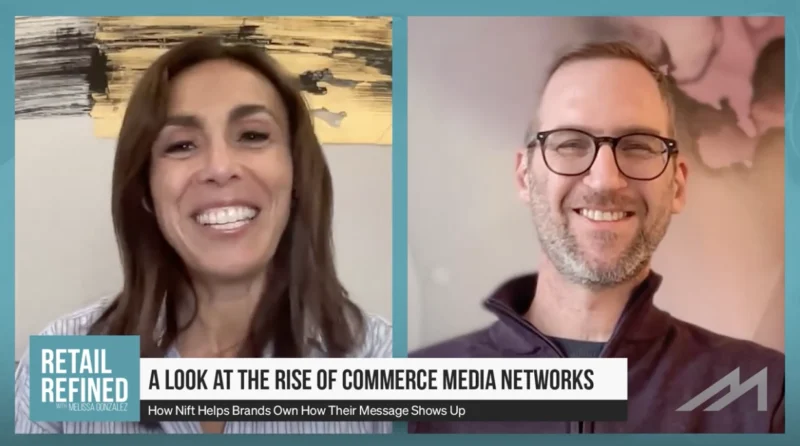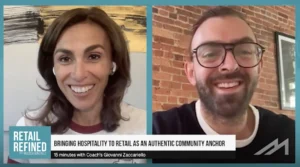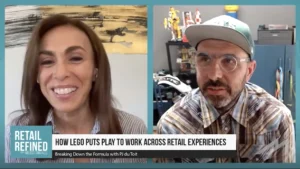How the Retail World Is Getting Around the Trucker Shortage
Have you walked into a Walmart lately and noticed a ‘for hire’ sign for truck drivers? In an age of fast fashion and free returns, the need for drivers has never been greater. According to FTR Transportation Intelligence, the nation’s truck driver shortfall swelled to a record 296,311 in the second quarter of 2018 even as for-hire truck tonnage rose.
Factor in new driver regulations and a hot economy and you get a driver shortage that’s still working its way through the retail supply chain. Is the worst over? We asked Avery Vise, Vice President of Trucking for FTR Transportation Intelligence, to break down the numbers.
Madeline Katan: How bad is it out there?
Avery Vise: The first half of 2018 was just crazy. But for retailers it has stabilized for the most part. That doesn’t mean it’s good. Freight rates are considerably higher and it’s still a struggle to get capacity. We probably have seen the worst.
MK: How did we get here?
AV: Regulation and a lack of drivers were the two biggest reasons for the driver shortage. For more than 80 years drivers have been required to abide by certain rules, and until December of last year it wasn’t required to use anything other than paper to monitor compliance. For small carriers, it was hard to audit (drive time) so there was a certain degree of fudging in compliance.
That all changed in 2018. Truckers now have to use an electronic device to track drive time. A lot of flex in the system went away, and it went away suddenly. That exacerbated a bigger issue which was that the trucking industry had not hired enough drivers in the first place.
What’s ironic is that even the companies that build the equipment that transportation providers use are having trouble getting the equipment to the trucking companies because they can’t get enough truck drivers to do it.
MK: How is this affecting retailers?
AV: The capacity shortage is affecting retailers. It’s more expensive to move products and more challenging to get them where they’re going.
And inventories have not come down to the degree you would expect in a strong economy. Things like two-day shipping require retailers to beef up inventories. We’re seeing a stalling out of the inventory to sales ratio. All of this adds stress to distribution.
MK: Are delivery times getting hurt?
AV: It’s disrupting the normal flow from factory to store shelf. It may take longer to get from factory to warehouse. It makes everything more expensive and more difficult. You make money making a good and selling it–you don’t make money having it sit in a warehouse. It may not become so severe that you have a shortage of product but you do have more cost.
MK:Is this a boon for rail?
AV: Trucking is not an island so rail is stressed as well. Intermodal would often be your go-to when there’s a trucking shortage. There is growth but not as much as there should be.
We all knew the electronic monitoring device mandate was coming. But the railroad industry got caught by the same thing the trucking industry did, which is they did not anticipate the economic boom lasting as long as it has. We’re a quarter away from longest growth period ever.
What’s really a competition to trucking are containers but container capacity has been constrained. A container takes goods from China all the way to a major retail store all in one box. On a rail box car you don’t have that same efficiency.
Normally seeing a tractor trailer sitting on a train is pretty uncommon but this year, because there wasn’t enough container capacity and because carriers were not able to get drivers, some very large trucking companies used the railroad to move (goods in) tractor trailers.
MK: Why not use private fleets?
AV: The problem with a private fleet being a total solution is if you think about how distribution works, you can’t afford to build out a network to deliver your product all across the country unless you’re a very large carrier.
Take lawn fertilizer. There’s not enough margin on having relatively small amounts of it delivered to every Walmart, Home Depot and Loews in the country to justify having a private fleet do that.
Some large retailers might have a small contingent fleet in case of an emergency to get a product to a particular location.
But the underlying problem is not solved. You have to get a driver.
MK: Is the consumer now an insatiable monster?
AV: The degree to which the consumer feeds into this idea that ‘I need something quickly’ depends on the strong economy. In the next recession that that will start to go away. Right now there’s no perceived cost to needing something fast but in a recession people will say “I don’t really need it in two days.”
We’re seeing a lot of changes in how products are distributed. Things like pickups at Walmart and Target, ordering online. You don’t even have to go into the store.
There’s a lot of disruption. There used to be a set way that everything was done. Products went to distribution centers and then to stores where people bought it. Now it goes to a distribution center and then it may go directly to the consumer. Amazon is building out a network of fulfillment centers that are (more widespread) than what we used to think of as distribution centers.
And Target bought Shipt. You’ll go to a grocery store and see people with Shipt t-shirts shopping for someone who they will deliver groceries to.
We’re in an omnichannel environment now.
In some remote areas you might have a drone do the delivery where you can’t justify a truck and a driver.
Things are changing and change is causing stress. Any time you change a standard process it causes some kind of impediment and we would be feeling that even if the economy were soft.








